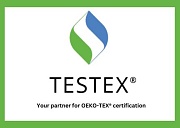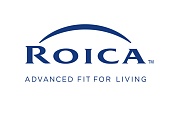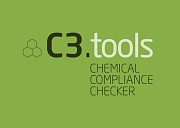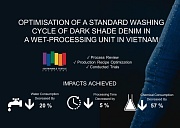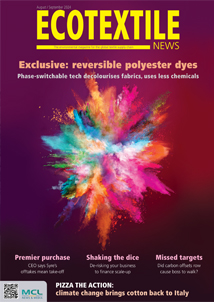SPONSORED CONTENT – The sustainability spotlight has never shone so brightly on the fashion industry. Amid increasing expectations from shoppers and official regulators pushing for more transparency and improved accessibility to the data, the pressure is mounting on brands to support their sustainability claims with tangible, trustworthy evidence. The challenge now is how brands keep up, comply, and communicate.
The answer is traceability technology. Traceability and transparency encompass the entire lifecycle of a product: from raw materials to packaging and introduction to the market, and finally to its end-of-life solutions. With increasing legislation determining how brands must package and sign their products, the stakes are high, and the requirements can be complex and ever-changing.
In response to this, a plethora of track and trace tech-nologies have entered the market. Well known for its ability to assess brands in complying with care and content requirements globally, Trimco is going one step further. With their longstanding and wide network of suppliers across the globe, TRIMCO GROUP developed its proprietary ProductDNA, one of the only traceability platforms that ticks all the boxes: from complete certificate management, and material analysis to Product-as-a-Service (PaaS) options and now, a newly added Packaging Module. This comprehensive digital solution helps brands monitor, assess, and optimise their supply chain to enable a compliant, circular, and sustainable industry.
The platform features four modules, each designed to facilitate a brand’s sustainability goals. The Certificate Manager helps brands monitor environmental and social compliance. The Product Manager provides in-depth insights at the material level, crucial for responsible sourcing and an essential tool for validating weight-based claims. The Digital Manager involves the use of QR codes to be more transparent to consumers and includes PaaS options, connecting with the consumer via a product’s digital ecosystem. The fourth and latest module, the Packaging Manager, was developed in response to rising international packaging and waste regulations, increasing the urgency for brands to monitor and reach EPR (Extended Producer Responsibility) objectives which aim to reduce the environmental impact of packaging waste. The Packaging Manager focuses on EPR compliance, featuring automated packaging reports for international EPR requirements, complementing Trimco’s expertise within signage compliance advice.
Now is the time to act
With the introduction of new Packaging Waste Regulations in the UK in 2022, packaging and end of life financial responsibilities are switching from the public sector to brands. EPR schemes for textile packaging such as this are rapidly being introduced globally to ensure that brands take responsibility for the collecting, sorting, and recycling of their packaging and to reduce the vast quantities of waste filling landfills, for which the fashion industry is a notorious contributor.
This complex network of legislation means that different countries have varying requirements on packaging reporting. The same goes for packaging signage, which Trimco Group advises on too. The challenge for brands is to accurately compile the different types of packaging for products sold to different markets. ProductDNA’s Packaging Manager collects this information through its network of suppliers. The data gathered is then compiled into a comprehensive report that answers the EPR schemes associated to a brand’s target territories.
As it stands today, we are witnessing only the tip of the iceberg. With the continuous implementation of legislation alongside increasing consumer awareness, we are set to see more and more regulations and requirements regarding manufacturing, waste, and signage. It is, therefore, essential that brands make the best decisions today to set themselves up for future success. Trimco Group understands this need and supports the market with a team of international experts. Through adopting traceability technology and a collaborative approach, brands can streamline their sustainability strategy, all the while complying with the often complex and ever-changing international regulations.














